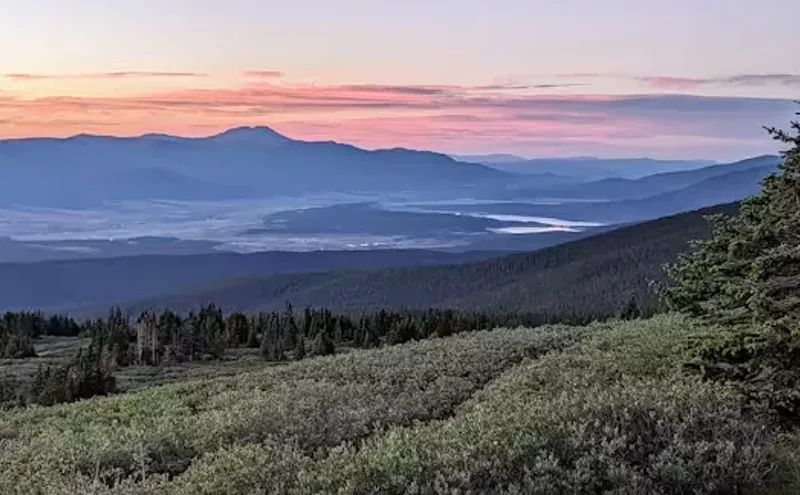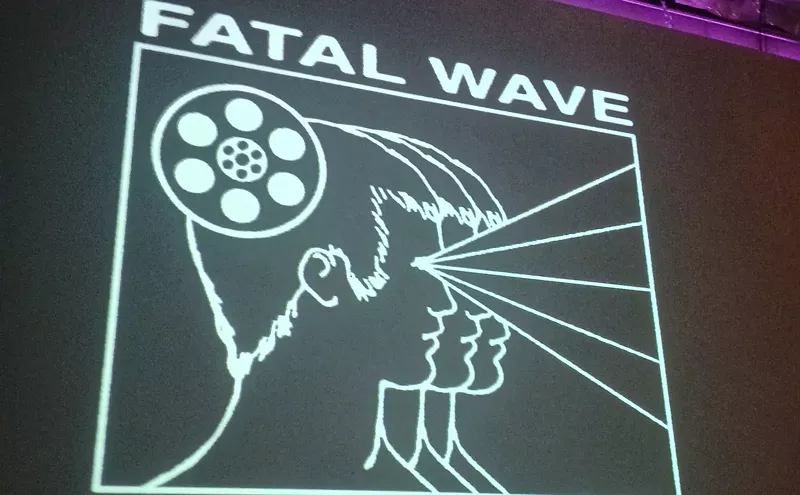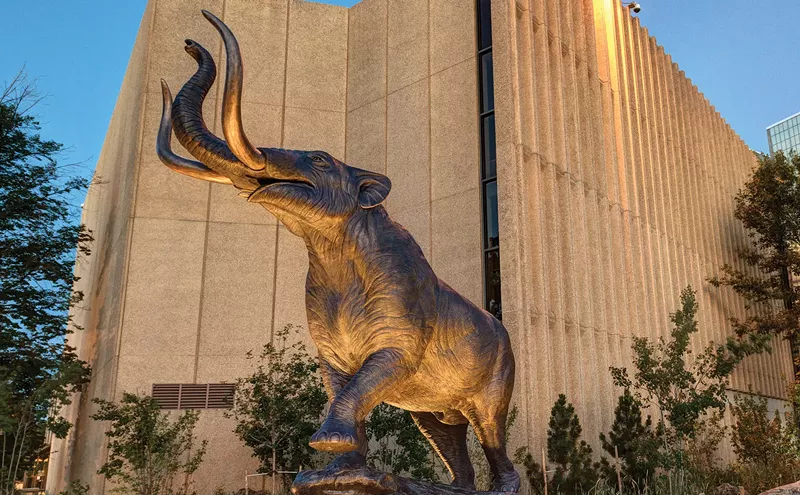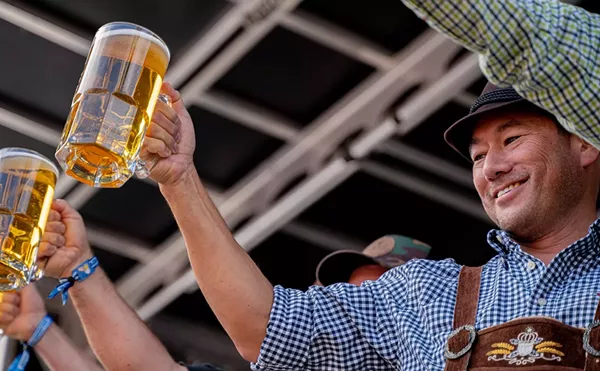That made the duo a perfect choice for ABC's new reality competition series Expedition Impossible, where they and teammate Aaron "Ike" Isaacson raced through Morocco in a month-long adventure packed with challenges pitting them against a dozen other teams. They surprised even themselves by making it all the way to the final four, and they're throwing a finale-watching party tonight at the Lazy Dog Saloon in Boulder, 1346 Pearl Street, to celebrate. We caught up with Weihenmayer and Evans, two thirds of the No Limits team, to get the scoop on everything but a spoiler for tonight's episode.
Westword: Congrats on making it to the finale and making for some awfully compelling television along the way!
Jeff Evans: Thanks! ABC has done a good job of showing something that, really, Erik and I have been doing together for a long time, which is getting out there and having some adventures together against all odds.
Obviously you've had a lot of people cheering you on over the last decade, but I'm curious: Is there a different level of recognition now because of this show?
Erik Weihenmayer: It's not like we set out to be reality TV stars or anything, but it is kind of cool to be getting emails from people saying, "You guys are my kids' heroes." We get hundreds of these things, and we've been getting people coming up to us in airports to congratulate us. It's been pretty wild.
Evans: More than anything I think the cool thing is the conversations people are having with their families about what's possible and about what they'd do with they're lives if they were disabled or if a good friend of theirs was disabled. For us it was just another adventure, but then all of a sudden as the episodes have been airing we're realizing that people have really been affected by what we've been able to accomplish over the course of the show. I know you can't give anything away about the finale, but can you tell me what it's like just to have made it to the final four?Weihenmayer: When Jeff and I first talked about it, we said, "What are our goals here?" We were one of the most experienced teams, so we didn't want to get eliminated in one of the first episodes. That would have been embarrassing: I would have had to hang my head in shame! We thought, "If we're going to do this we definitely want to make a really proud showing." When I watch the shows now, after the fact, I think we have a lot to be proud of as a team, and the thing I'm most proud of is that even when we thought we were going to be sent home, we didn't turn on each other. If you look at the Fab 3, another team on the show, they totally turned on each other in that sailboat like, "I hate being here, you're the last person I ever want to be with, F-you!" We never did any of that: We were like, "Hey, if we're going home we'll go home like men, we'll go home proud and we'll stick together."
Did the other teams underestimate you because Erik's blind, or was there an awareness like, "This guy's been up Everest, he's the real deal"?Evans: I was acutely aware of everybody looking at us and sizing us up when we first landed in Marrakesh. Everyone was doing what we as humans do: We were sussing everybody out, looking at who potentially could beat us and who we could beat. At first no one knew about Erik and what we had done, and then it sort of slowly dawned on them, like "Oh, shit, that's the guy who climbed Everest. That could be problematic for us." There was a lot of underestimating, I'm sure, and perception's a big part of it, but Erik's been dealing with that and attacking it head on for his whole life.
Weihenmayer: We were all doing it. Even I'm guilty of judging a book by its cover, and I can't even see! Everybody was sizing everybody up. Like, I was thinking, "Oh, look at these gay guys, I don't want to be beat by a gay guy," and meanwhile the gay guys are going, "I don't want to be beat by a blind guy."
Evans: It makes for good competition: Nobody wants to be beat by a stereotype!
Ten years ago, standing on top of Everest in what would have been a lifetime bucket list achievement for anybody, I get the sense you were up there thinking, "This is only the beginning."Weihenmayer: When I stood up there on the summit all I was thinking was, "Holy cow, my life has changed!" I went through a year of being in this crazy zone just processing what we'd done and what it all meant, but when you're given a success like that, why waste it? I didn't want to look back in 20 years and say Everest was the biggest accomplishment of my life. I wanted to use that momentum to keep pushing myself and to keep inspiring other people living with disabilities. Anybody watching the show could see the team spirit and camaraderie between you and Jeff. Obviously having a good buddy has really helped make all of this possible.
Weihenmayer: You can tell by the way this guy talks to me that we've known each other for a long time. There's a scene in the Everest documentary we made where we're at 26,000 feet and I'm on my knees sucking wind, and Jeff's like "Stand up! Stand up!" Ten years later we have to jump off a cliff during an Expedition Impossible challenge and there he is again, going, "Stand up! Stand on the end! Jump off!"Evans: I didn't realize the parallel, man, thanks for pointing that out. Here I am, still telling you to stand up ten years later! Get up off your knees, man!
Weihenmayer: We have a good rapport and I've put my life in his hands a hundred times. A friendship definitely changes and grows as a result of those kinds of experiences.
Tell me a bit about the third member of the No Limits team on the show. How did Aaron "Ike" Isaacson come to be a part of the team?
Weihenmayer: We've got a million old crusty climbing friends we could have picked, but we asked ourselves, "Is that the right answer?" Jeff and I had organized the Soldiers to the Summit expedition together in 2010, leading a group of severely injured soldiers to the summit of Lobuche, a 20,000' peak in the Himalayas near Everest, and we had seven of the ten soliders get to the summit. Ike was a part of that climb: He'd been in a bomb explosion in Iraq where he'd lost some hearing and had a traumatic brain injury, and then he'd also fallen off a cliff in an incident in Afghanistan where he destroyed his leg and had to have it reconstructed. We thought, this is a cool dude and a patriot and he's somebody we'd be happy to spend a month with, so we decided to take a chance with him and asked him to join the team.
Ike's ankle injury during the show seems to have slowed you down more than having a blind guy on the team!Weihenmayer: Things happen at the worst time: We'd been through river beds and jumping off cliffs and riding horses, just a hundred things where you might have sprained your ankle really badly, and he goes and does it on a curb running through the village. It was just bad circumstances, but it turns out that Ike is maybe a little bit klutzy. He did get a Purple Heart in Afghanistan for falling off a cliff, after all.
Evans: You can see on the last couple shows where we're running across the finish line just ahead of another team and here's Forrest Gump running behind us with his big cast swinging, little chunks and pieces falling off. It was a little bit comical, but we kept making it anyway. He really sucked it up and manned up when it came down to it.
I understand tonight's finale party is a benefit for No Barriers USA. What do you hope people watching your team in action take away from watching Expedition Impossible?
Weihenmayer: No Barriers is an organization that helps people shatter personal barriers and lead more fulfilling, more adventurous lives. We had 600 people in Winter Park for our summit in July looking for adventure and looking to showcase new technologies that are making those adventures possible. On Everest and now again on Expedition Impossible we've shown that a blind guy with the right support and the right team can carry through. No Barriers is like that: It's all about picking the right team of people who are going to support you with your dreams and then engineering your way through, problem-solving your way through. It could be over the top, it could be under the top... Maybe your goal is not to climb Everest, maybe it's just to climb up your first flight of stairs after getting blown up in a war somewhere. Whatever your dream is, don't let anything stand in the way of it.Does the fundraiser party benefit a specific No Barriers project?
Weihenmayer: No Barriers is administering our Soldiers to the Summit program: We'd like to make those expeditions into yearly events where we work with a different team of newly injured soldiers throughout the year and then the icing on the cake is that we go and do a big expedition overseas. The symbolism of climbing a mountain and standing on top with your team, that just projects all the messages that we want to convey. So we'll raise money specifically for Soldiers to the Summit... it costs about $10,000 for us to scholarship one soldier through to the summit and back, and I'd love to see us raise that tonight to send one soldier to the summit.
Soldiers to the Summit Trailer from Serac Adventure Films on Vimeo.
Evans: We brought the Modern Gypsies team in for the finale party as well, and so the money we raise will also benefit their charity, Free the Children. The Gypsies are a good group of guys who have that same spirit as us and we instantly became pals with them on the show. After last week's episode aired and we could disclose that we'd made it to the finale, we could think of nothing better than to bring all six of us together to share this experience. So they're coming out, we've got the executive producer Lisa Hennessy coming out, and we plan on throwing a big party with live music in the early hours before the show. We're going to do some storytelling, have a silent auction, try to raise some money and some awareness. We didn't want the momentum to stop with the finale, so we're trying to capitalize on all this silly energy this TV show has helped generate.
Tickets for tonight's finale party are $25 and benefit both No Barriers USA and Free the Children.
UPDATE, via No Barriers USA:
We are completely sold out for our Expedition Impossible Finale Fundraiser with Team No Limits! Thanks to everyone. You can still help out though! Anyone who makes a $50 or greater donation online by Noon (MDT) Thursday will be entered into a drawing to win one of four pairs of tickets to the event. To participate in the drawing or simply make a donation, go to http://ow.ly/64EFv.












